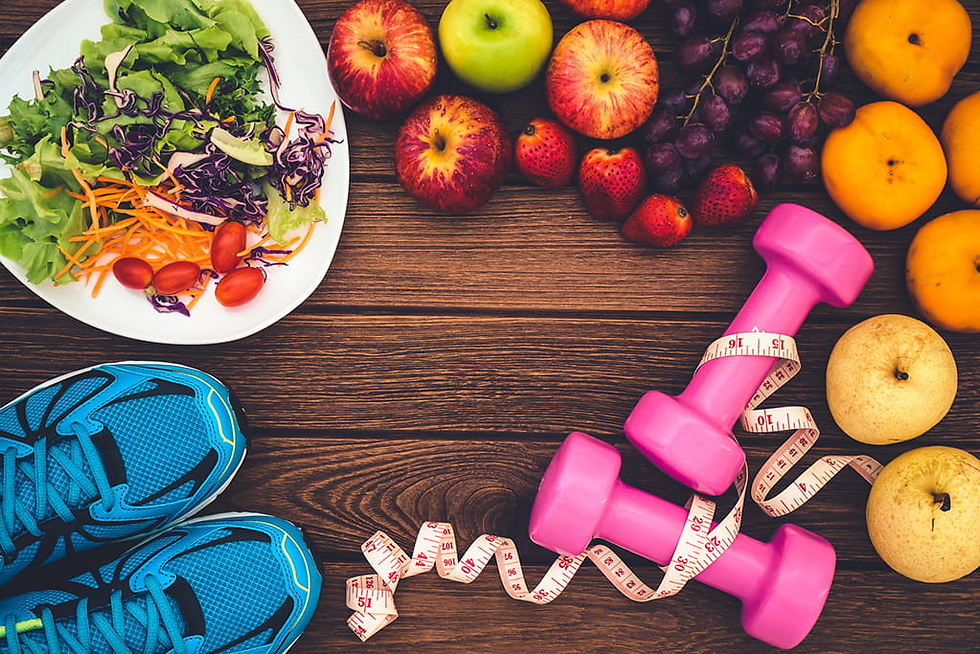Do You Eat Too Fast?
- Jul 7, 2020
- 2 min read

You’ve probably heard that eating too fast often leads to overeating. Did you know that your state of mind has a lot to do with how much you eat. Before you put the first forkful of food in your mouth consider these ideas from Rosalie Schiappacasse, MS, MSW, at Nutritional & Behavioral Care:
BEFORE YOU EAT
Take deep breaths before a meal. Look at your food and ask yourself: “Is this food nourishing my body? Will it make me feel confident, happy and energetic or will it make me feel tired, depressed and guilty?” Make sure your plate is filled with balanced protein vegetables ad healthy fats.
CHECK YOUR STATE OF MIND
Feeling stressed can actually make you eat faster. Before a meal, write down your to do list and journal what you are stressed about. Get the emotions and stresses out of your body to prevent you from eating your stress.
Consider before each meal to think “HALT.” Ask yourself, am I Hungry? Angry? Lonely? Tired? If you’re angry, take a walk. If you’re lonely, call a friend. If you’re tired, take a nap. Listen to your body. Don’t just eat.
PRE-EAT
Make sure you’re not starving before a meal. If you are, eat some vegetables, fruit, nuts, avocado or protein first. Then, wait and eat one hour later. We tend to eat too fast if we’re starving.
FOCUS
Turn the TV, computer and/or cell phone off. You deserve 30 minutes to yourself. If you’re focused on the meal, you can pay attention to your body cues and know when you are full.
HOW TO EAT SLOWER
Now, it’s time to actually slow down your eating. Put your fork down between bites and follow these other simple tips.
FOLLOW YOUR PARTNER
Pace yourself with the person you’re eating with. Always have the other person finish their meal AFTER you. If you’re halfway done before him, put your fork down and wait until he is halfway done. Then, continue the second half of your plate together.
WATCH THE CLOCK
Do you eat in 10 minutes? Perhaps have it take 30 minutes to complete your meal. It takes 20 minutes to know you’re full; if you eat faster than that, chances are you’ll eat more than needed.
CHEW SLOWER
It’s important to chew your food well to get the nutrients you need out of the meal. If you don’t, you put extra strain and pressure on your intestines to break the food down for you. Consider taking digestive enzymes and HCL with your meals to help your body break the food down.

Comments